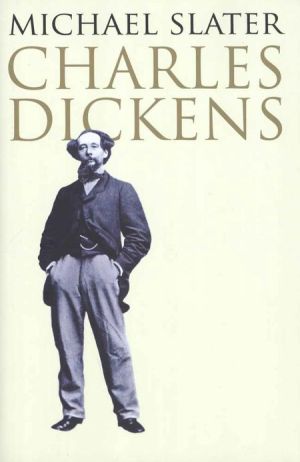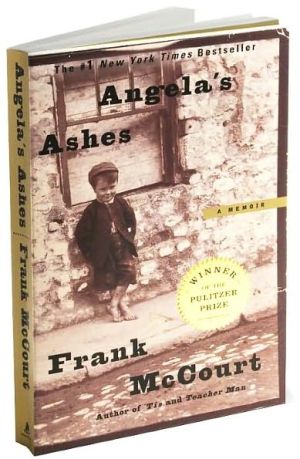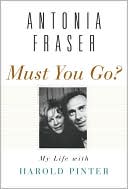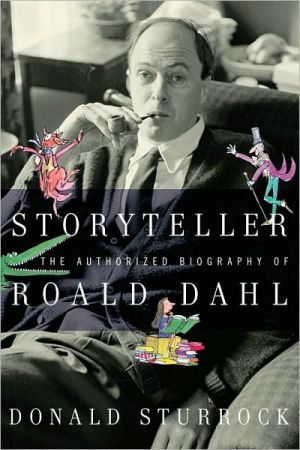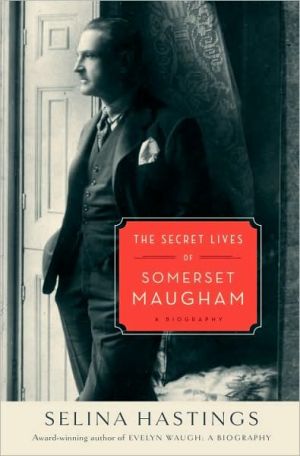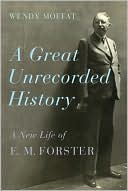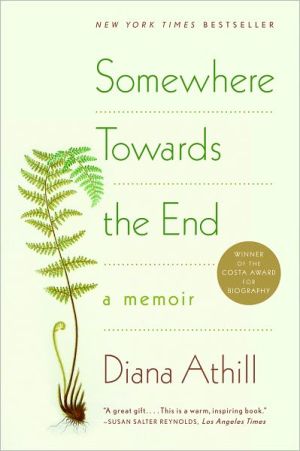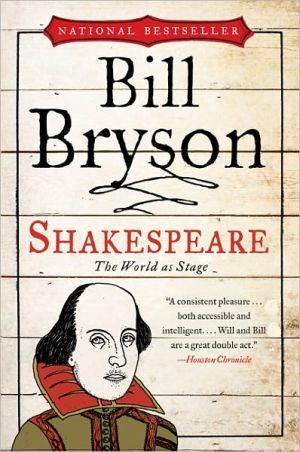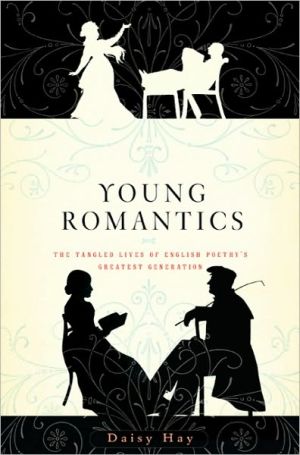Charles Dickens: A Life Defined by Writing
This long-awaited biography, twenty years after the last major account, uncovers Dickens the man through the profession in which he excelled. Drawing on a lifetime’s study of this prodigiously brilliant figure, Michael Slater explores the personal and emotional life, the high-profile public activities, the relentless travel, the charitable works, the amateur theatricals and the astonishing productivity. But the core focus is Dickens’ career as a writer and professional author, covering not...
Search in google:
This long-awaited biography, twenty years after the last major account, uncovers Dickens the man through the profession in which he excelled. Drawing on a lifetime’s study of this prodigiously brilliant figure, Michael Slater explores the personal and emotional life, the high-profile public activities, the relentless travel, the charitable works, the amateur theatricals and the astonishing productivity. But the core focus is Dickens’ career as a writer and professional author, covering not only his big novels but also his phenomenal output of other writing—letters, journalism, shorter fiction, plays, verses, essays, writings for children, travel books, speeches, and scripts for his public readings, and the relationships among them.Slater’s account, rooted in deep research but written with affection, clarity, and economy, illuminates the context of each of the great novels while locating the life of the author within the imagination that created them. It highlights Dickens’ boundless energy, his passion for order and fascination with disorder, his organizational genius, his deep concern for the poor and outrage at indifference towards them, his susceptibility towards young women, his love of Christmas and fairy tales, and his hatred of tyranny.Richly and precisely illustrated with many rare images, this masterly work on the complete Dickens, man and writer, becomes the indispensable guide and companion to one of the greatest novelists in the language. The Barnes & Noble Review The most illuminating moment in Michael Slater's revelatory Charles Dickens comes in a marvelous quotation from Fyodor Dostoevsky, who met with Dickens in the offices of the latter's periodical All the Year Round, during an 1862 visit to London. The great English novelist unburdened himself in an almost confessional style: "All the good simple people in his novels, Little Nell, even the holy simpletons like Barnaby Rudge, are what he wanted to have been," his Russian visitor reported later, "and his villains were what he was (or rather, what he found in himself), his cruelty, his attacks of ceaseless enmity toward those who were helpless and looked to him for comfort... There were two people in him, he told me, one who feels as he ought to feel and one who feels the opposite." Perhaps uniquely, Dostoevsky was up to the task of responding, asking impishly: "Only two people?"
\ Economist"The attention Mr. Slater gives to Dickens's less familiar writings—the short stories, journalism, and essays—is one of the things that distinguish his excellent biography. . . . An authoritative and engaging biography." —The Economist\ \ \ \ \ Washington PostMagnificent....For anybody who wants to know more about this dynamo of Victorian letters, Michael Slater's superb biography is the one to read.—Michael Dirda, Washington Post\ — Michael Dirda\ \ \ \ Guardian"… Indispensable … [Slater] assembles a million accumulated details, minutely examining the genesis of each work …. [This] is an incomparable portrait of the writing life of Dickens. Cumulatively, it is profoundly moving, chronicling the constant restless interaction between the life and work."\ - Simon Callow, The Guardian\ \ \ \ \ Weekly Standard[Dickens] remains in the forefront of our literary consciousness, as firmly fixed there as Chaucer and Shakespeare, his mentors in the creation of the unforgettable. . . . Slater’s imposing work has 'bicentennial' written all over it. It is academic biography at its weightiest, exhaustive, and meticulous . . . [and] the rewards are considerable.—Edwin M. Yoder, Weekly Standard\ — Edwin M. Yoder\ \ \ \ \ \ New CriterionInsofar as any biography of a writer can be said to be a permanent contribution, Slater’s is.—Alexandra Mullen, New Criterion\ — Alexandra Mullen\ \ \ \ \ \ Studies in English LiteratureTurning to the other major nineteenth-century novelist critical industry: Michael Slater's Charles Dickens now takes its place as the definitive modern one-volume biography. It is an especially valuable book for scholars, since Slater focuses more intensively and consistently than any previous writer on Dickens's literary career. Profiting from the competition of the Pilgrim Edition of the letters (2002), Slater attends to the entirety of that career, interweaving the serial production of the great novels with the author's journalistic and theatrical enterprises. While the familiar landmark events of the life are all there, from the blacking warehouse to the Ellen Ternan affair, it is Slater's detailed yet clarifying command of Dickens's literary work that make his book uniquely compelling.—Ian Duncan, Studies in English Literature\ — Ian Duncan\ \ \ \ \ \ Wall Street JournalA "captivating biography." Michael Slater "seems to have consulted every scrap . . . that Dickens scribbled on in his 58 years, to produce exactly what the book's subtitle promises: "a life defined by writing." . . . Mr. Slater's dogged scholarship is surprisingly readable, in part because he often lets his subject speak for himself.—David Propson, The Wall Street Journal\ — David Propson\ \ \ \ \ \ First ThingsMichael Slater clearly admires his subject. He has spent his adult life reading and thinking about Dickens and lecturing about his books at London University and elsewhere. He is a gifted and careful scholar who is on close terms not only with Dickens’ fiction, journalism, and correspondence, but also with the central events and attitudes of the Victorian age. The result is a book that is well written, clear headed, even keeled. Slater’s biography will stand now as Edgar Johnson’s once did—as the definitive narrative account of Dickens’ crowded career.—Brian Murray, First Things\ — Brian Murray\ \ \ \ \ \ New RepublicWith the appearance of Michael Slater's extraordinary biography, which exhuberantly tracks the mercurial energy of Dickens's publication history—as well as his editing and his public readings—it is possible to be accurate to Dickens's wild originality, the career of his career. . . . This is a biography of a writer as writer. It is therefore quite unique.—Adam Thirlwell, The New Republic\ — Adam Thirlwell\ \ \ \ \ \ Victorian StudiesMichael Slater's wonderfully detailed biography of Charles Dickens has rightly been called magisterial. It presents a richly contextualized account of the author's life and work, illuminating the interconnectedness of Dickens's concurrent projects and providing new insights of a kind that would be unavailable to any less holistic account.—Holly Furneaux, Victorian Studies\ — Holly Furneaux\ \ \ \ \ \ Hungarian Journal of English and American Studies (HJEAS)…. [A] vast critical and biographical canon of Dickens….Strongly recommended for students as well as scholars….and to readers who wish to explore the man behind the canonical artist.—Rudolf Nyári, Hungarian Journal of English and American Studies (HJEAS)\ — Rudolf Ny�ri\ \ \ \ \ \ Times Literary SupplementMichael Slater’s brilliant Charles Dickens (2009) is set fair to become the standard Life.—Samantha Matthews, Times Literary Supplement\ — Samantha Matthews\ \ \ \ \ Classic Feel"Slater's account illuminates the context of each of the great novels while locating the life of the author within the imagination that created them." —Classic Feel\ \ \ \ \ English StudiesMichael Slater has written the definitive biography of Charles Dickens.—Valerie Kennedy, English Studies\ — Valerie Kennedy\ \ \ \ \ \ Claire Tomalin“No living person is a greater authority on the life and works of Charles Dickens than Michael Slater.”—Claire Tomalin\ \ \ \ \ Weekly Standard“[Dickens] remains in the forefront of our literary consciousness, as firmly fixed there as Chaucer and Shakespeare, his mentors in the creation of the unforgettable. . . . Slater’s imposing work has 'bicentennial' written all over it. It is academic biography at its weightiest, exhaustive, and meticulous . . . [and] the rewards are considerable.”—Edwin M. Yoder, Weekly Standard\ \ \ \ \ New Criterion“Insofar as any biography of a writer can be said to be a permanent contribution, Slater’s is.”—Alexandra Mullen, New Criterion\ \ \ \ \ Wall Street JournalA "captivating biography." Michael Slater "seems to have consulted every scrap . . . that Dickens scribbled on in his 58 years, to produce exactly what the book's subtitle promises: "a life defined by writing." . . . Mr. Slater's dogged scholarship is surprisingly readable, in part because he often lets his subject speak for himself."—David Propson, The Wall Street Journal\ \ \ \ \ First Things"Michael Slater clearly admires his subject. He has spent his adult life reading and thinking about Dickens and lecturing about his books at London University and elsewhere. He is a gifted and careful scholar who is on close terms not only with Dickens’ fiction, journalism, and correspondence, but also with the central events and attitudes of the Victorian age. The result is a book that is well written, clear headed, even keeled. Slater’s biography will stand now as Edgar Johnson’s once did—as the definitive narrative account of Dickens’ crowded career."—Brian Murray, First Things\ \ \ \ \ Washington Post"Magnificent....For anybody who wants to know more about this dynamo of Victorian letters, Michael Slater's superb biography is the one to read." —Michael Dirda, Washington Post\ \ \ \ \ New Republic"With the appearance of Michael Slater's extraordinary biography, which exhuberantly tracks the mercurial energy of Dickens's publication history—as well as his editing and his public readings—it is possible to be accurate to Dickens's wild originality, the career of his career. . . . This is a biography of a writer as writer. It is therefore quite unique."—Adam Thirlwell, The New Republic\ \ \ \ \ Studies in English Literature"Turning to the other major nineteenth-century novelist critical industry: Michael Slater's Charles Dickens now takes its place as the definitive modern one-volume biography. It is an especially valuable book for scholars, since Slater focuses more intensively and consistently than any previous writer on Dickens's literary career. Profiting from the competition of the Pilgrim Edition of the letters (2002), Slater attends to the entirety of that career, interweaving the serial production of the great novels with the author's journalistic and theatrical enterprises. While the familiar landmark events of the life are all there, from the blacking warehouse to the Ellen Ternan affair, it is Slater's detailed yet clarifying command of Dickens's literary work that make his book uniquely compelling."—Ian Duncan, Studies in English Literature\ \ \ \ \ Victorian Studies"Michael Slater's wonderfully detailed biography of Charles Dickens has rightly been called magisterial. It presents a richly contextualized account of the author's life and work, illuminating the interconnectedness of Dickens's concurrent projects and providing new insights of a kind that would be unavailable to any less holistic account."—Holly Furneaux, Victorian Studies\ \ \ \ \ Hungarian Journal of English and American Studies (HJEAS)“…. [A] vast critical and biographical canon of Dickens….Strongly recommended for students as well as scholars….and to readers who wish to explore the man behind the canonical artist.”—Rudolf Nyári, Hungarian Journal of English and American Studies (HJEAS)\ \ \ \ \ Times Literary Supplement“Michael Slater’s brilliant Charles Dickens (2009) is set fair to become the standard Life.”—Samantha Matthews, Times Literary Supplement\ \ \ \ \ English Studies"Michael Slater has written the definitive biography of Charles Dickens."—Valerie Kennedy, English Studies\ \ \ \ \ The Barnes and Noble Review“Anyone who cares about Dickens, or is interested in how literary reputations are made, will be fascinated by The Great Charles Dickens Scandal.”—Adam Kirsch, The Barnes and Noble Review \ \ \ \ \ Erie News-Times“[Slater] avoids speculation and focuses on facts. Watching them pule up is one of his new book’s pleasures.”—Erie News-Times\ \ \ \ \ Hungarian Journal of English and American Studies (HJEAS)“…. [A] vast critical and biographical canon of Dickens….Strongly recommended for students as well as scholars….and to readers who wish to explore the man behind the canonical artist.”—Rudolf Nyári, Hungarian Journal of English and American Studies (HJEAS)\ \ \ \ \ Michael Dirda…Slater's calm march through the life and work of "this very strange genius"…feels completely trustworthy…For anybody who wants to know more about this dynamo of Victorian letters, Michael Slater's superb biography is the one to read.\ —The Washington Post\ \ \ \ \ Publishers WeeklyThere is no shortage of doorstop biographies of Charles Dickens (1812–1870). This latest one by Slater, a Dickens scholar and professor emeritus at the University of London, bears an easy, fluid familiarity with the subject at hand. Scholars will appreciate the ingenuity with which the art was chosen. Above all, as the subtitle indicates, this work showcases the contours of Dickens's crammed life with the focus on his writings. And for these reasons, this biography will have primarily an academic appeal. But Slater superbly showcases Dickens's fascination with London life as it developed during his early teenage years; how the stage beckoned a man who was temperamentally a great parodist; why social issues and a refusal to kowtow to authority came to dominate the author's aesthetic families. But it was his startling affair with young actress Ellen (Nelly) Lawless Ternan, a story concealed until the 1930s, which defined Dickens's later life as much as his punishing reading tours did. Overall, this best known of English authors after Shakespeare gains a scholarly, levelheaded and even affecting new illumination of his writing life. 16 pages of color illus., 60 b&w illus. (Nov. 10)\ \ \ \ \ Library JournalTwenty years after the last significant biography of Charles Dickens, prominent scholar Slater (Victorian literature, emeritus, Birbeck Coll., Univ. of London) offers a fascinating portrait of the man and his work. What makes this work distinctive is Slater's examination of Dickens, the professional writer. It turns out the novels we know and love are but a part of Dickens's extensive oeuvre. Plays, essays, articles, speeches, travel writing, letters, and stories for children were just some of the outlets for his abundant creativity and passion. Through Slater's highly readable prose the reader becomes acquainted with Dickens the working man as he morphs into the man who created the world of Oliver Twist. VERDICT Not since Fred Kaplan's Dickens: A Biography (1988) have we seen such a detailed examination of Dickens's life. This is not only a scholarly portrait of a beloved author but an affectionate look at a much-loved human being. An enjoyable read for academics and enthusiasts alike.—Carol Gladstein, McMinnville P.L., OR\ \ \ \ \ The Barnes & Noble ReviewThe most illuminating moment in Michael Slater's revelatory Charles Dickens comes in a marvelous quotation from Fyodor Dostoevsky, who met with Dickens in the offices of the latter's periodical All the Year Round, during an 1862 visit to London. The great English novelist unburdened himself in an almost confessional style: "All the good simple people in his novels, Little Nell, even the holy simpletons like Barnaby Rudge, are what he wanted to have been," his Russian visitor reported later, "and his villains were what he was (or rather, what he found in himself), his cruelty, his attacks of ceaseless enmity toward those who were helpless and looked to him for comfort... There were two people in him, he told me, one who feels as he ought to feel and one who feels the opposite." Perhaps uniquely, Dostoevsky was up to the task of responding, asking impishly: "Only two people?" \ And yet it is hard to avoid the conclusion that, for all the human variety contained within Dickens's crowded fictions, and for all the myriad energy of his achievements -- that groaning shelf of novels and short works, the social crusades, magazines founded and edited, colleagues brought up under his wing, and the invention of the novelist's reading as a public event -- Charles Dickens was only one person: a writer. Speaking to a colleague about another of the magazines he edited, he tellingly confused "Charles Dickens" with what came out of his pen: "I diffuse myself with infinite pains through Household Words and leave very few pages, indeed, untouched." In his own eyes he seems to have been something of a well of his own style and sensibility, his soul an inky liquid to be pumped out onto manuscript sheets.\ This close connection has been made clear for generations of readers, of course, by the way the author drew on his own childhood -- years marred by his prodigal father's debt, which subverted his middle-class education and replaced it with a stint working in a factory at the age of twelve -- in novels like David Copperfield and Little Dorrit. But the version of Dickens as the inventor who turned his early suffering into enduring fictions doesn't much help prepare one to take in the scope of Dickens's intertwined life and life's work, which brought him a level of individual celebrity that went nearly unrivalled by a novelist until the advent of J. K. Rowling.\ Slater's long-anticipated biography of the writer, thankfully, makes just such perspective possible -- though, at the rate its 600-plus pages sail by, one could be forgiven for failing to remark it. Though the author is an eminent scholar of his subject, his deep dives into archival materials never result in academically dehydrated findings. Instead, we get thrilling access to the life Dickens lived as it poured out onto the page. Dickens's private letters, his many minor articles, short stories, sketches, and editorial notes -- all are made to speak in the service of Slater's fully animated portrait. The result is so lively and so packed with fascinations that one scarcely notices the heft of the research behind it.\ The commercial and the artistic mingled indiscriminately in Dickens. Even as his career as a novelist was taking off, he couldn't turn down the offer to edit (and in the end, rewrite) the memoirs of the famous stage clown Joseph Grimaldi -- turning "twaddle" as he called it, into readable prose. Students are still asked to read Great Expectations with an eye to theme and structure; what would they make of the fact that the novel, originally planned to be written in expansive and leisurely monthly segments, was hastily re-conceived as a weekly serial to run in All the Year Round, when the meandering work of another contributor sent sales plummeting (Dickens held a "council of war" with his partners and decided to "strike in" himself to save the day)?\ But Dickens's investment in the book itself was personal: he suffered an intense "neuralgia of the face" throughout the book's composition, and though Slater is deeply cautious about psychological analysis, he suggests that Pip's apparently deluded pursuit of Estella seemed to return the author to the painful memories of a youthful rejection suffered himself. A few years earlier, his decision to become the mesmerizing public reader who re-enacted the murder of Nancy from Oliver Twist to terror-struck audiences of hundreds had also been born, as Slater documents, out of a thoroughly mixed desire to make more money and to commune with his adoring readership. His confidant and eventual biographer, John Forster, thought it a tawdry dimunition: Dickens ignored Forster's scruples.\ That need for communion had a perpetual hold over Dickens, who would have made a superlative blogger: he wrote brilliantly under pressure, "dashing off" fictional stories, travel pieces, slice-of-life essays, character studies, and unstoppable critiques of social injustices at a rate that would be hard to believe if it weren't so well documented. But these performances were so fluid and immediate that Dickens spent a considerable amount of energy throughout his career inveighing against those who presumed that writing was anything other than grueling labor. In one angry missive about a hopeful contributor to Household Words:\ He has a general idea that literature is the easiest amusement in the whole world. He figures a successful author as a radiant personage whose whole time is devoted to idleness and pastime -- who keeps a prolific mind in a sort of a corn-sieve, and lightly shakes a bushel out of it sometimes, in an odd half hour after breakfast.\ Even if the tone of familiarity and self-mocking ease he took with his readers suggested otherwise, Dickens argued that an almost monkish program of "patience, study, punctuality, determination, self-denial, training of mind and body, hours of application and seclusion" were required "to produce what [the reader] reads in seconds." \ Though he remained adamant in representing himself as a self-exhausting martyr to the page, Dickens seems to have been the life of nearly every party he attended. This had nothing to do with the fact that he was famous -- or at least, only partly to do with it. The fact of the matter was that he was a walking, talking entertainment. Carlyle's description suggests much: "Clear blue intelligent eyes, eyebrows that he arches amazingly, large protrusive rather loose mouth -- a face of most extreme mobility, which he shuttles about, eyebrows, eyes, mouth and all, in a very singular manner when speaking."\ That busily expressive face, so productive of droll stories and anecdotes taken from some slight experience walking over to his hostess' townhouse that very afternoon -- it never seems to have flagged, except in the most trusted company, and not, often, even then. Most of the major Victorians are exhausting to contemplate, Dickens even more so -- although Slater's descriptions of the novelist's whirlwind exertions are a vicarious delight. In his later career, after finishing a major work, he would unwind by hauling Wilkie Collins or another friend along as he hurled himself up a mountain or undertook another travel challenge. And then, before returning, he'd promptly write a three-part travel essay for his magazine, complete with humorous sketches of the bumbling innkeeper or a searing portrait of human suffering, like a snapshot sketch of the bleak Cornish mining country, with its "solitary works on remote hill-tops, and bare machinery of torturing wheels and cogs and chains, writhing up hill-sides" like demonically mechanized serpents.\ Despite the novelist's relentless literary output, as John Forster was surprised to discover as he composed his Life of Dickens in the months following Dickens's death in 1870, his correspondence proves that he wasn't even close to exhausting the material unconsciously gathered every time he set foot out of the door. According to Slater, for example, Forster presumed that Dickens's American Notes comprised the cream of the writer's puckish observations on his 1842 tour of the United States. But the published work contained, it turned out, none of Dickens's mordant observations on his chat with President Tyler, which he portrayed in a letter as a solemn exchange of confused platitudes and uncomfortable silences, with the President seated by his "great spit box."\ Another scene Slater unearths, from a letter to the philanthropist Angela Burdett Coutts, shows that it wasn't only Dickens the humorist who created surplus material, but also Dickens the indelible dramatist of human want. Exploring a povery-stricken part of Southwark, and faced in a deserted block by a forlorn child staring from a ramshackle gallery, Dickens was transfixed:\ God knows when anybody will go in to the child, but I suppose it's looking over still -- with a little wiry head of hair...all sticking up on its head -- and an old weazen face --and two bony hands holding on to the rail of the gallery, with little fingers like convulsed skewers.\ One isn't sure which to marvel at more -- the masterful compression of the writer's touch, or the power of Dickens's perpetual identification with the figure of a suffering child, old and young at once, coming around again with desperate force. The magnanimous energy with which the observer inhabits the scene is, of course, nothing short of Dickensian -- a word as rich with pleasures and emotions as any in English literature, and one that is animated with new meanings in this generous biography. --Bill Tipper\ A former teacher of literature, Bill Tipper has been Managing Editor of the Barnes & Noble Review since its launch in 2007. His reviews have appeared in the Washington Post Book World and elsewhere.\ \ \
